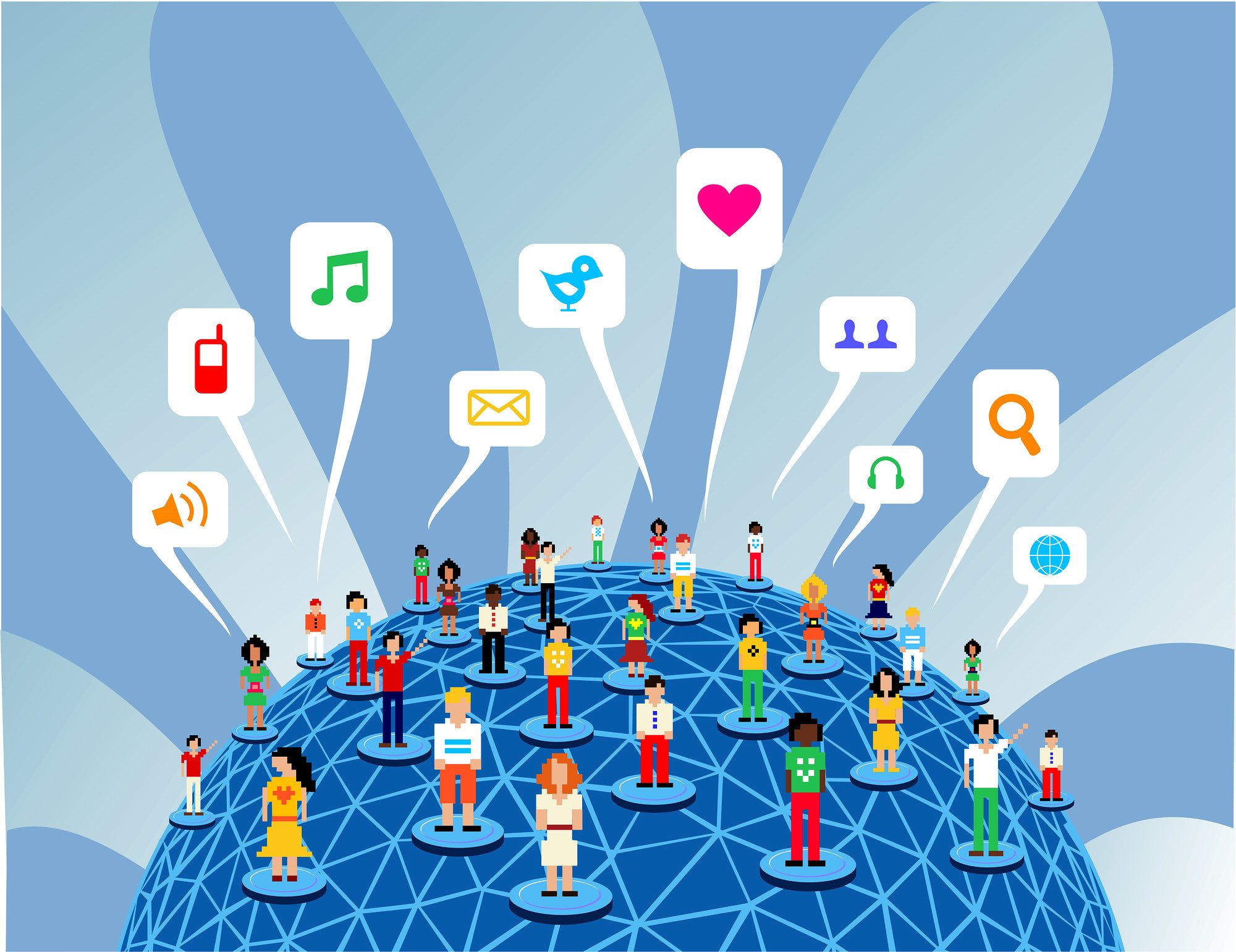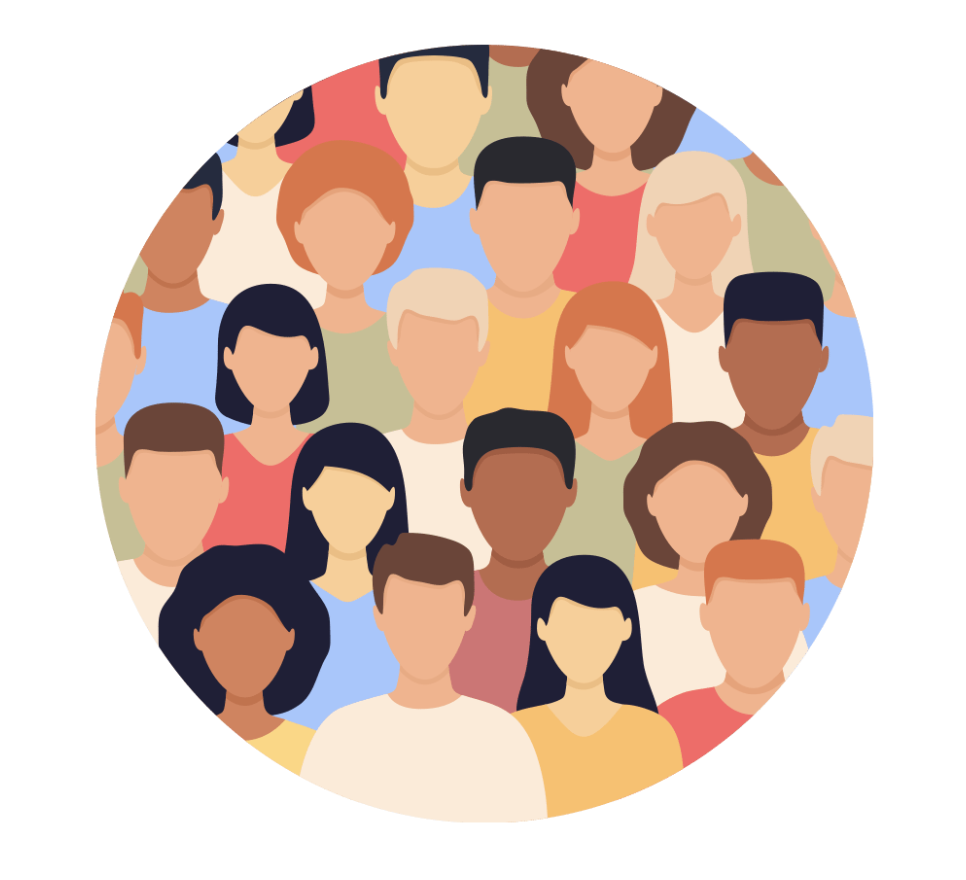Social Problem - Understanding Our Shared Challenges
Sometimes, it just feels like something is off in the way our world works, doesn't it? We look around and notice certain things that hold us back, keeping us from being our best selves as a group. These are what we often call "social issues" or "social problems," and they're basically any situation or difficulty that a group of people collectively agrees is a barrier to everyone living well together. It's not just a personal hiccup; it's something that affects many, many people, and it needs our attention.
When a large group of people says, "Hey, this isn't working for us," that's when a situation moves from being just a random event to something we label a social problem. It’s about a shared sense that things could be, and really should be, better for everyone. These are the kinds of troubles that keep a community from humming along smoothly, so you know, they really get in the way of everyone reaching their full potential. It’s a collective feeling that something needs fixing, a bit like a shared ache that everyone feels.
So, you might be thinking, what kinds of things count as a social problem? Well, it's pretty wide-ranging, actually. It could be something as big as how money and chances are spread out among people, or as personal as how someone's beliefs shape their health choices. These are the matters that communities look at and say, "This is stopping us from being our best," and that, in a way, makes them a common concern for all of us.
Table of Contents
- What Makes Something a "Social Problem"?
- Why Do Some People Feel Left Behind?
- How Do Personal Beliefs Shape Our Care?
- What Can We Do When Things Get Tough?
What Makes Something a "Social Problem"?
You know, it's pretty interesting how we decide what counts as a big group difficulty. Not every little thing that happens in a community gets that label, right? A social problem is something that a whole lot of people have agreed upon as a genuine obstacle, something that keeps a community from doing its very best. It’s a shared concern, a collective acknowledgment that there's a hitch in the system, so to speak, that needs sorting out. It's a bit like a car engine sputtering; everyone can tell it's not running as it should, and that collective awareness is what gives it the "problem" status.
The Idea of a "Social Problem"
The core idea behind a social problem is that it's a recognized difficulty that stops a group of people from working together as smoothly as they could. It's not just a random occurrence; it's something that has been identified by the community as a real barrier to everyone thriving. For instance, if you think about it, a weak job market for young people, as some folks like Isabel Sawhill and Quentin Karpilow have pointed out, can really mess up their start in life, and that can have long-lasting effects. That kind of widespread difficulty, that's a social problem. It's a bit like a knot in a big piece of string that affects everyone trying to use it.
Why Do Some People Feel Left Behind?
It's a question many of us ponder, isn't it? Why do some folks seem to have a tougher time getting ahead, while others appear to move along with ease? This feeling of being left behind often comes from deep-seated difficulties within our collective arrangements. In recent times, for example, the way money and assets are spread out has become very, very unequal in many places. This growing gap between those who have a lot and those who have very little, it truly creates a lot of worry and unhappiness among people. It’s a source of real discomfort, you know, and it tends to stir up a lot of dissatisfaction within a community. This unevenness, it's a pretty big social problem for many.
The Uneven Playing Field of a Social Problem
When we talk about the uneven playing field, we're essentially talking about how some people face more obstacles than others, simply because of where they stand in the community. This kind of imbalance, where some have much more money and chances than others, has been growing in many places lately. This rising difference, and the related feelings of being worried or upset, have really been making people unhappy in their groups. It's a situation that some would argue is the number one shared and money-related difficulty facing a place like the United States today. This disparity, you know, it's a pretty significant social problem, creating real strain.
A Look at Missing Voices - a specific social problem
Sometimes, a social problem can be about people literally being absent from community life. For example, Rashawn Ray made a point about a truly striking number of Black men, about 1.5 million of them, who are just not present in the regular flow of community life at all. That's a huge number, isn't it? To help with this, he suggests that public plans should really work to create better work chances for Black men. This kind of absence, this lack of participation, is a very real and pressing social problem that needs specific attention. It's a situation where a whole group of people are, in a way, cut off from the shared experience of daily life, and that's a difficulty we should all care about.
How Do Personal Beliefs Shape Our Care?
It's a fascinating thing, how what we believe deep down can truly affect the practical choices we make, especially when it comes to looking after our health. When someone needs to make choices about their medical care, they often have to weigh their own personal thoughts, their deeply held values, and the unique details of their life. This can be a very personal and, at times, difficult process. Religious beliefs, for example, can have a truly big influence on the medical paths people choose. So, you know, the way our individual convictions interact with collective systems like health care, that can become a kind of social problem in itself, especially if the system isn't flexible enough.
Our Personal Paths and Social Problems in Health
Thinking about our personal paths, it's clear that the difficulties we face in health care often come down to individual situations. These are matters that a person will need to consider because of their own thoughts, what they hold dear, and their particular circumstances. For instance, sometimes, bigger changes in the way our communities are set up, or in our laws, have made certain rules more relaxed. This can affect everything from what is allowed in health care to how people get access to help. Kent Weaver and Ron Haskins, for example, often look at the issues and difficulties that researchers and people who advocate for change believe need to be fixed in official policies. These are, in a way, very personal aspects of a broader social problem that touches us all.
What Can We Do When Things Get Tough?
When life throws curveballs, and we find ourselves facing these big, shared difficulties, what steps can we actually take? It's a question that often comes up, isn't it? Luckily, there are many ways that communities and groups try to help people through rough patches. Whether it's about getting financial aid when things are tight, or finding a place to live, or even just getting help with finding a job, there are often resources out there. These are the kinds of efforts that try to ease the burden of a social problem, making sure that people don't have to face their troubles all alone. It's about building a safety net, you know, for when life gets a bit overwhelming.
Finding Help for Social Problems in Our Communities
Across different levels of government, from local towns to big cities and even whole states, there are a lot of services available to help people who need a bit of a hand. These "social services" are there to give assistance to people and families going through a tough financial time, for instance. Things like help with finding work, getting some cash aid, food assistance, or even places to stay are often available. In a place like Dallas, for example, these kinds of services are there to meet people where they are, offering a chance to get back on their feet. These efforts are a direct way of tackling a social problem, offering practical support when it's most needed. It’s about making sure that, when things get hard, there's somewhere to turn, and that's a truly important part of how a community looks after its own.
Thinking About Tomorrow - Social Security and its role in social problems
Part of dealing with the big shared difficulties we face is planning for what's ahead, and that's where things like Social Security come in. You can, for example, set up a "My Social Security" account today and feel a bit more at ease knowing you have some say over your future. This kind of system is there to provide a foundation, helping people feel more secure about what's to come. It’s a way that governments around the world often prefer to help their people, giving them a bit of a cushion. However, it's worth noting that even these systems change; for instance, starting January 6, 2025, the Social Security Administration will ask everyone to set up a meeting for any service at their local offices, including just asking for information. This shows how even the ways we get help for a social problem can shift over time.
Beyond government help, there are also community groups, like Social Dallas, which aims to reach people everywhere, offering a chance to build a stronger community spirit. They hold services and create a welcoming space for folks looking for spiritual growth and connection. These kinds of groups truly cross all barriers, trying to meet people right where they are. They are, in a way, another important part of how we address the big, shared difficulties, offering support and a sense of belonging when people need it most. So, you know, whether it's through official programs or community efforts, there are many hands working to make things better when a social problem makes life difficult.
To sum up, a social problem is a recognized difficulty that stops a community from working at its best. These issues can range from the unfair spread of money and chances, which can really make people upset, to the very real absence of certain groups from daily life, like the large number of Black men missing from social participation. Our personal beliefs can also shape how we deal with health issues, showing how individual choices connect to bigger community matters. Thankfully, there are many ways we try to help, from government programs offering financial aid and job support to community groups that build connections and offer a sense of belonging. These efforts, like managing your future through Social Security or finding support at a local community center, are all part of how we collectively work to ease the burdens these shared difficulties place on us all.

Is Social Media Fueling Social Anxiety? – Lehigh Center

The Biggest Social Media Trends in 2023

Home - Dean's Office SEL lessons - LibGuides at J. Sterling Morton High